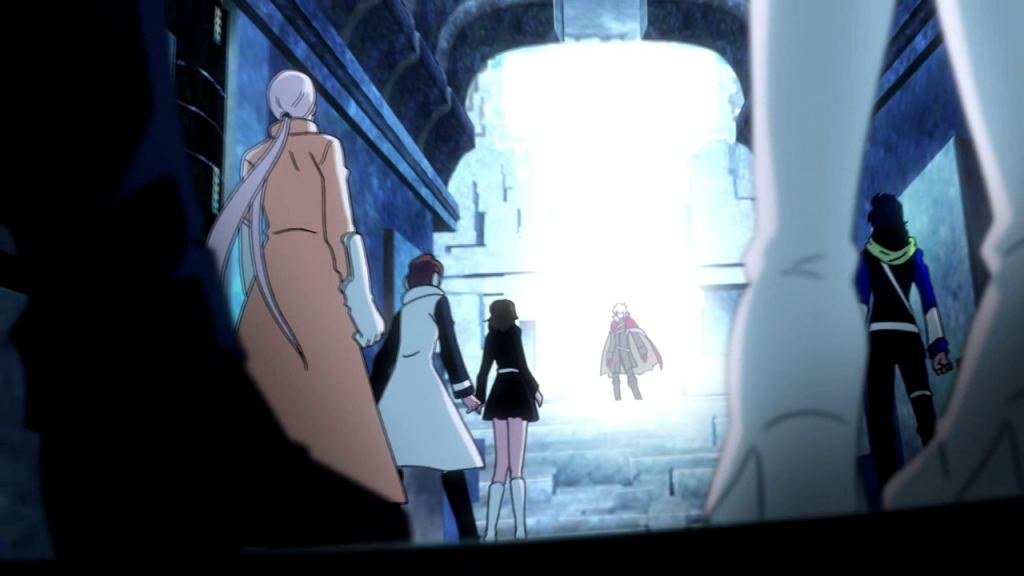
“Trust no one.”
It’s a phrase that’s often uttered, but no game has really delivered on the promise that lies within it. After all, you may find a traitor in your midst in a game, but it’s usually an isolated incident and always something you can know ahead of time with a little research. Lost Dimension‘s very premise takes on the challenge: anyone around you could turn on you at any moment. In fact, the game’s main adversary, a fellow appropriately named The End, comes across as the most trustworthy of them all: you can trust that he’s up to no good and messing with you at every turn.
Or can you? This is a game that revels in challenging your assumptions, and pays off just often enough to keep your suspicions high.
Lost Dimension is a squad-based tactical RPG, centered around a group of exceptional individuals trapped in a building by a mysterious, evil force. (That’s a trend these days, huh?) You’re Sho Kasugai, whose special power centers around visions of the future. In battle, that means you get a few tricks like better accuracy, but more importantly, it means it’s your job to find traitors in your midst.
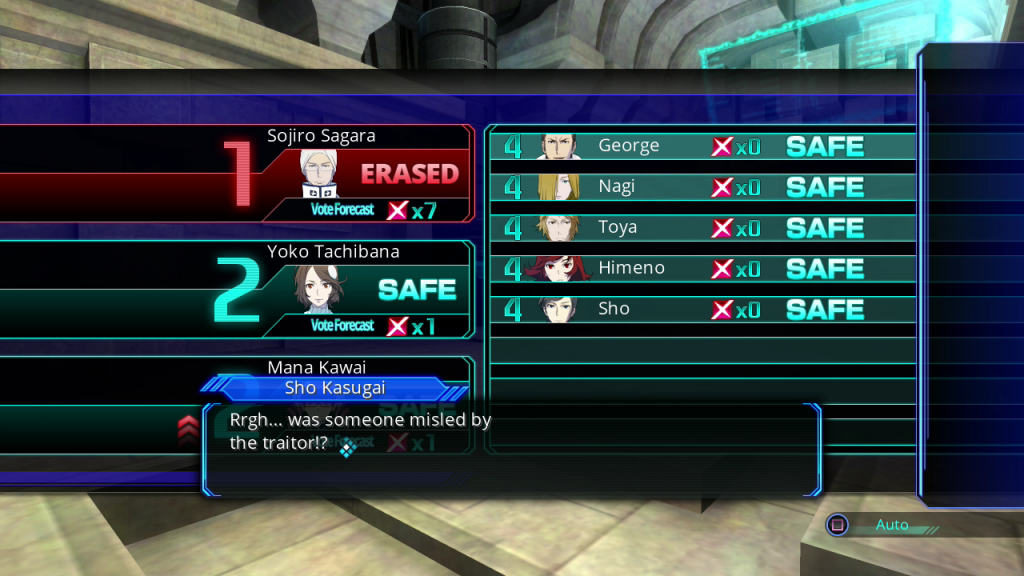
There’s a new one each floor. Could it be Zenji, the shifty-eyed copycat with mob ties? George, the American swordsman who talks suspiciously often about his sense of justice? Maybe it’s Mana, the melee bruiser who’s decided she should try to be cute and make a truly dismal attempt at a British accent? With the exception of the first, these are randomly determined, so no amount of Googling will help you.
What will help you is paying attention to who’s in the battle when you pick up on suspicious thoughts and using your Vision Points on selected teammates to investigate further. You also spend time outside of battles talking to others to earn loyalty and make sure they listen to you when you do find the traitor, as well as fight by their side to show your commitment to the cause.
This traitor search consumes Lost Dimension‘s narrative, which is okay, because nothing else about it grabs you very much. Every story sequence seems utilitarian rather than an interesting exploration of this world, and since it’s a bunch of amnesiacs in an enclosed structure, there’s literally nowhere to go and nothing to do but the prescribed critical path. These won’t be your favorite characters, but you’ll be able to tell them apart, and that’s enough for the game’s premise.
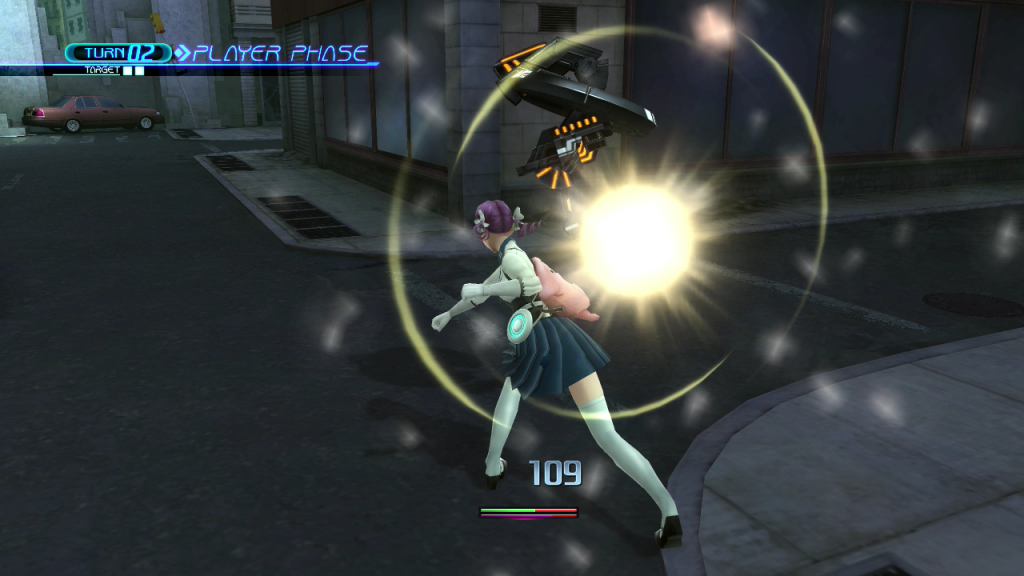
The battles themselves play like… well, they play a lot like Sakura Wars: So Long, My Love, a wonderful game that incredibly few of you played despite my repeated urging. You move around enclosed spaces in a turn-based fashion, positioning yourself tactically within your movement circle and setting up special attacks and combo opportunities.
You’ll bring in a squad of six characters from your slowly-dwindling-from-a-dozen contingent, and the small number means each has a distinct set of strategies. You can defer your action to a nearby teammate at the cost of a portion of your sanity, but generally each moves once a turn and combos are key to success. You’ll quickly learn that the power of these combos is built into the design, so any time you’re not attacking with an assist from every other party member, you’re losing ground. There’s an occasional scenario that forces you to split up to avoid area attacks, but generally it’s a matter of taking out everyone within range in one turn so that you’re not left vulnerable.
It’s possible that you’ll develop your favorites, but the design of Lost Dimension is intended to make you choose only the right people for the job. Some maps make a brawler like Mana useless, as you need to stay back or shoot from other platforms. Others need the levitation skills of Nagi to reach otherwise-inaccessible terrain, even though usually she’s too fragile to be a smart pick. This gets more complicated as you lose party members to betrayal and deletion. You do retain those skill trees as items to equip to others, but if you, say, lose healer Sojiro early in the campaign, you may find it tough to get by without someone working to advance and augment those restoration abilities.
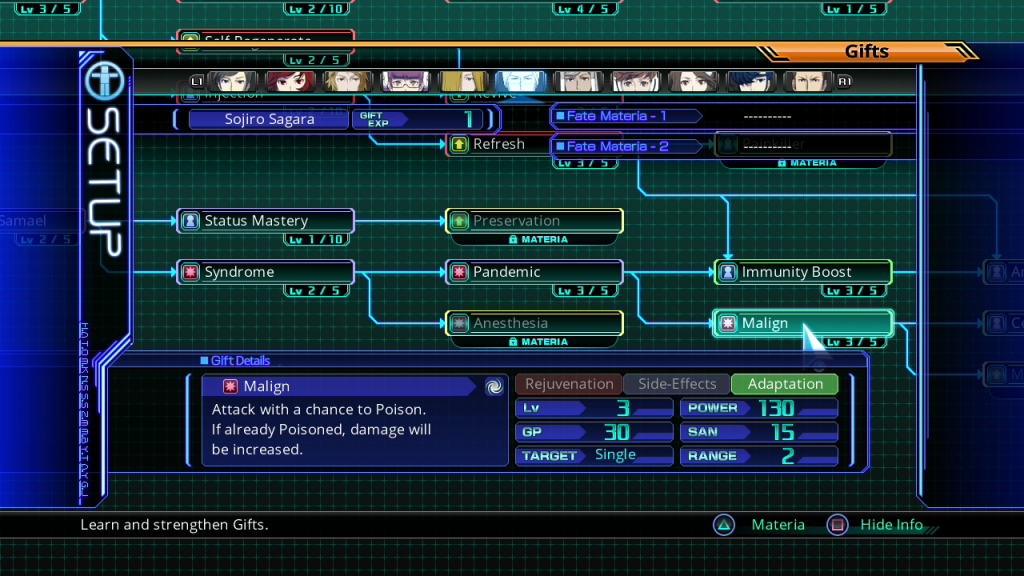
The depth and replay value of the game centers around an intricate, weaving skill tree that’s unique for each character. It’s not that skills have pre-requisites so much as it is that these skills could need to be augmented five times, or these skills could be in a different section of the skill tree, or these skills may be in other characters’ trees entirely. It’s clear enough about how to get these abilities, but it’s also clear that you’ll need to commit to a few that you like and leave others untouched for another go.
Lost Dimension is both a PS3 and a Vita release, and though the PS3 version’s more than suitable, it holds up quite well on the Vita and may be a great thing to play on the go with your don’t-call-it-a-legacy-platform. Pushing it one way or the other could have optimized it in a few ways, but the game’s limited visual ambitions and turn-based combat mean you won’t mind too much.
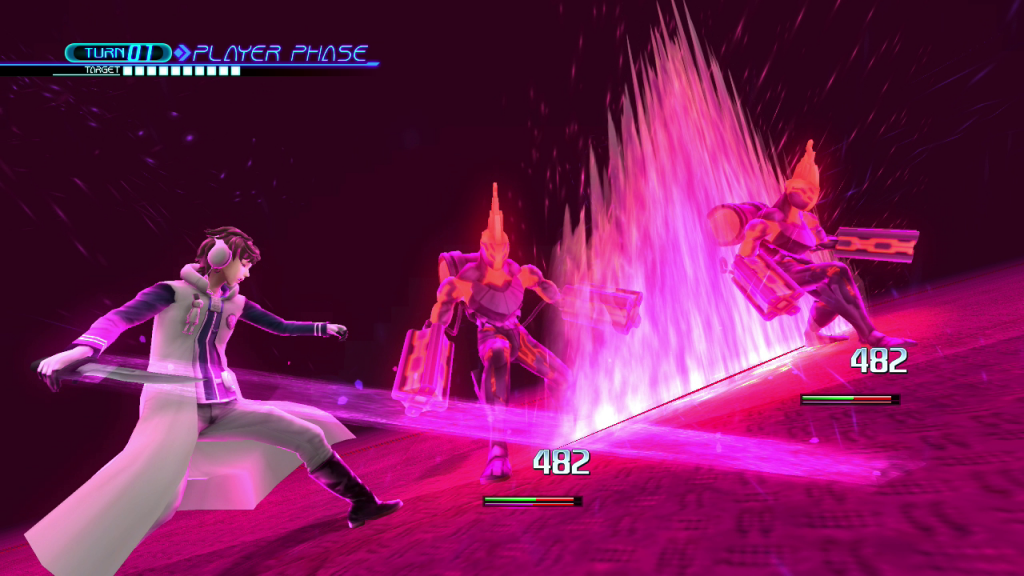
Lost Dimension isn’t sprawling or engrossing in the same way as some other Atlus offerings, but it smartly uses its limited scope to provide varied battle scenarios surrounded by intriguing logic puzzles and keep you headed forward in its adventure. It’s certainly worth a look for those who can appreciate its mechanics-first approach.
Pros: Intriguing premise, sharp tactical gameplay, high replay value
Cons: Weak conversation writing, combo attacks often lead to moving in a big clump



















